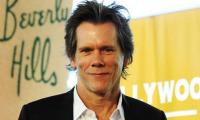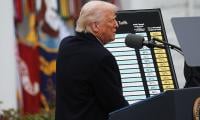Imran Khan is undoubtedly a popular leader and a crowd-puller. He was a household name as a cricketer before he entered into the world of politics. Khan and his supporters both consider him to be the prime minister-in-waiting.
He enjoys the support of important sections of society and some big sections of the media also facilitate in building and promoting his image as the only saviour of Pakistan. However, charisma and populism in politics fizzle out if not backed by solid ground work. The PTI was launched with the slogan of making Pakistan corruption free. But the PTI has failed to develop a comprehensive programme and strategy to solve the basic problems of the country’s people. The party is still a confused political entity as far as political ideas, programme and its policies are concerned; it never provided any details about how exactly would its government free Pakistan of corruption.
If we look closely at the attractive and popular slogans of change and corruption-free Naya Pakistan, we will find out that there is no real content but the superficial gloss of a revolutionary change. There is no real plan, no humble understanding of the institutional means required to accomplish such radical changes – only a leader perceived to be honest can fix it all. Vague and demagogic slogans and utopian thoughts do not bring about a change. Concrete steps, a well thought-out programme and serious planning are needed to change things.
The fact of the matter is that the PTI represents the interests of the same ruling elite that it intends to oppose. Its leadership consists of the same representatives of the ruling class: the capitalists, feudal lords, tribal chiefs and former military and civil bureaucrats. The PTI continues to accept and embrace tainted politicians from different political parties. It has become just another traditional political party ready to compromise every principle to achieve power.
There is nothing in the PTI’s economic programme and policies that would make it appear different from the two main political parties. The PTI wants to follow the same neo-liberal economic agenda which has caused widespread poverty, hunger and economic hardships for the poor. The traditional power politics of big money, influence and power has disillusioned many political activists who had joined the PTI thinking it would change things. The policy to embrace the maximum number of tainted electables has disappointed and alienated many ideological workers of the party.
Furthermore, the party’s narrative revolves around three main components. First, corruption is the main issue of Pakistan and other issues such as poverty, unemployment, lack of health and education facilities and price hike are the result of this corruption. Second, the PTI is the party of change and wants to smash the status-quo to build a Naya Pakistan. Third, both the PPP and PML-N are parties of the corrupt elite, and thus, represent the interests of the one’s like them, while the PTI is the party of clean politicians who want to really change things.
However, the party’s narrative of corruption is flawed. This narrative deliberately shifts the blame from the social and economic system and structure to some corrupt elements. It shifts the burden of blame from the neo-liberal economic policies of the ruling class to a handful of corrupt individuals. This narrative undermines the role of the ruling class as the social class that exploits and represses the working class and the poor. The real problem with the party’s narrative of corruption is that it simply ignores the other important socio-economic issues that the lower classes face.
The domination of such a political discourse consequently sidelines the main issues of economic inequality, poverty, exploitation, class repression; ethnic, gender and religious discrimination and religious extremism and violence, among others. And what makes it worse is that the mainstream media too tends to write off these socio-economic challenges as outcomes of corruption. When one blames corruption for poverty, hunger, exploitation and inequality, they ignore the basic fact that these imbalances are the result of super-exploitation of the working class and unfair distribution of the wealth. All of these are the result of the concentration of the wealth into fewer hands and rampant corruption only adds insult to the injury.
Our understanding of corruption is limited to the abuse of government and bureaucratic positions for financial gains. Although this act of rent-seeking for self-interest in the political arena does fall under corruption, the concept is much larger. In broader terms, real corruption is to keep the workers and peasants, who produce all the wealth in society, hungry, poor and in bad conditions. It is the weaker position of society that is at the disposal of market forces, the power of capital and the influence of wealth in electoral politics. In a nutshell, actual corruption is the legal or illegal accumulation of resources and social surplus in a few hands with or without the involvement of the government.
The elimination of corruption in all its manifestations is the ultimate state of equilibrium every society wants to achieve. But in Pakistan, the narrative of corruption has been blown out of proportion by some politicians and media who have a tendency to obsess over the idea of an individual’s corruption. This discourse is very convenient because it allows them to reduce complex socio-economic problems to the notion of flawed individuals. Therefore, they don’t have to link contemporary socio-economic problems with the prevailing structures of neoliberal capitalism, particularly because that would imply taking on powerful economic interest groups. Moreover, through this narrative the obvious political benefits are to be accrued by a party like the PTI that has never enjoyed power at the federal level.
This flawed narrative will not be able to bring any real change neither will it solve the public’s real issues, unless radical changes are brought about in the existing economic and social structure.
The writer is a freelance journalist.
Please note that dam survey team from World Bank had proposed building of this dam in 1955
For instance, price of electricity in Pakistan since 2021 has increased by around 150% which is staggering increase
This is why China is considering bringing issue before WTO due to unfair treatment of its exports through incremental...
Indus Commission having failed to find solution, dispute was discussed by foreign secretaries
This demand has fueled rapid growth deposit base of Islamic Banks and Islamic Windows operated by conventional banks
But Punjab Agriculture Food and Drug Authority building near Thokar Niazbeg on Multan Road stands out







